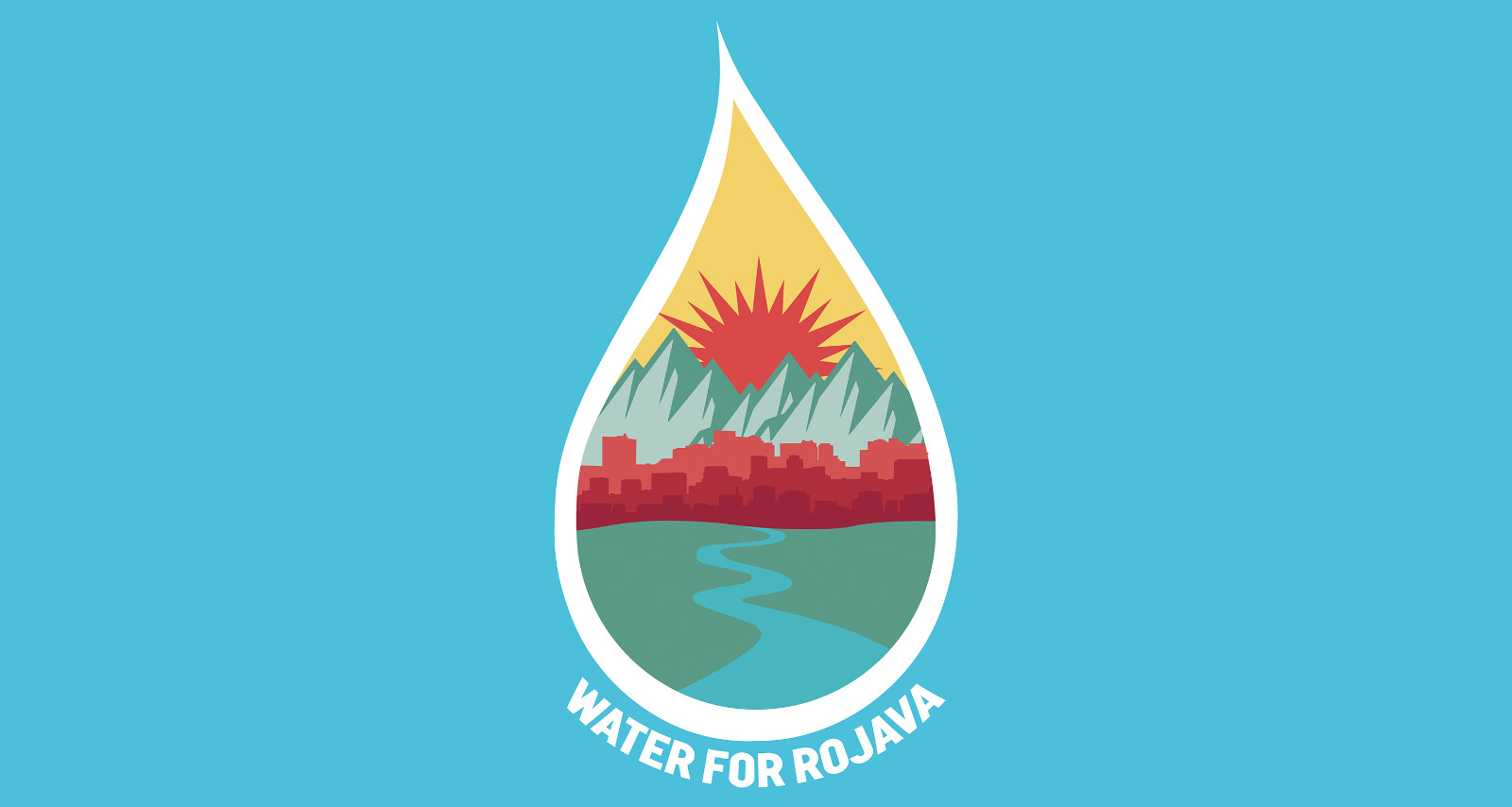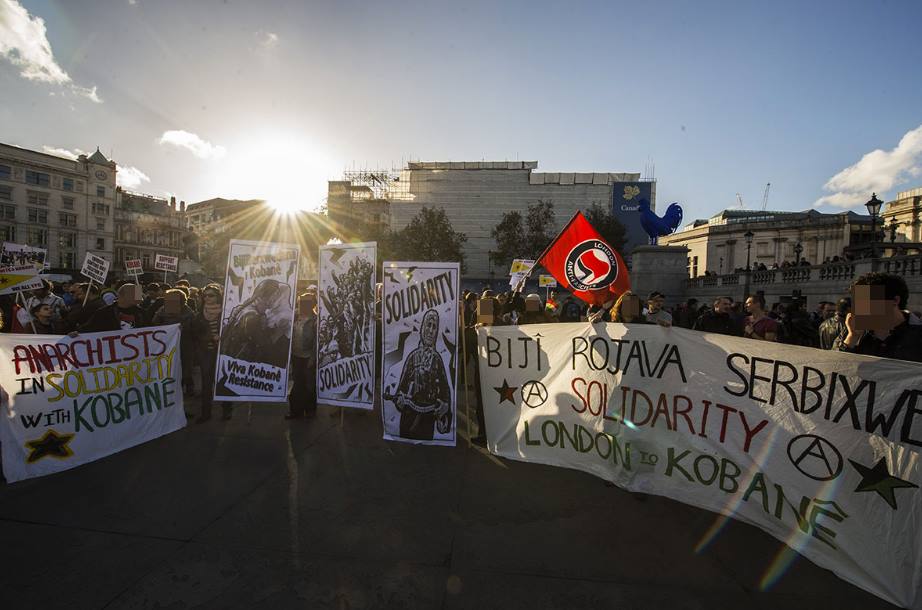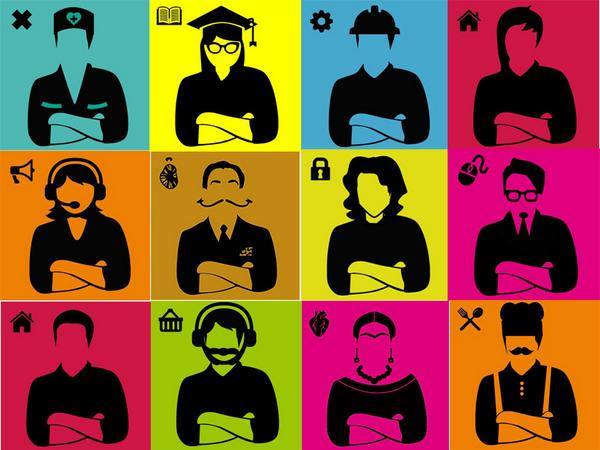There are only a few days left to donate to the Water for Rojava campaign. Help us raise £100,000 to support women’s co-operatives and vital water projects in North-East Syria. Thankfully the target has been already reached, but the more the better. Water is not a weapon, water is life!
If you have a problem donating with a credit or debit card you can also donate via Paypal.
Water is not a weapon, water is life!
In the region of North-East Syria, also known by its Kurdish name Rojava, a democratic self-administration system has been built up since 2012 – a system based on grass roots democracy, ecology and women‘s freedom, in which all the different ethnic and religious communities can live together on their own terms, through autonomy, self-determination, and equality.
The system is based on neighbourhood assemblies and councils, with principles of ecology and gender liberation at its heart, and values of ethnic and religious pluralism throughout. Women are at the front and centre of this movement.
But now, Rojava faces some big threats: War, embargo, water shortage
When the revolution in Rojava began, the groundwater level was very low due mainly to industrial monoculture agriculture organised by the Syrian regime over the last four decades, as well as a decline in rainfall as a result of the global climate crisis.
In 2015, Turkey started to use water as a weapon against Rojava by holding back the water on the rivers which flow from Turkey to Syria through the dams it has been building over the last twenty years.
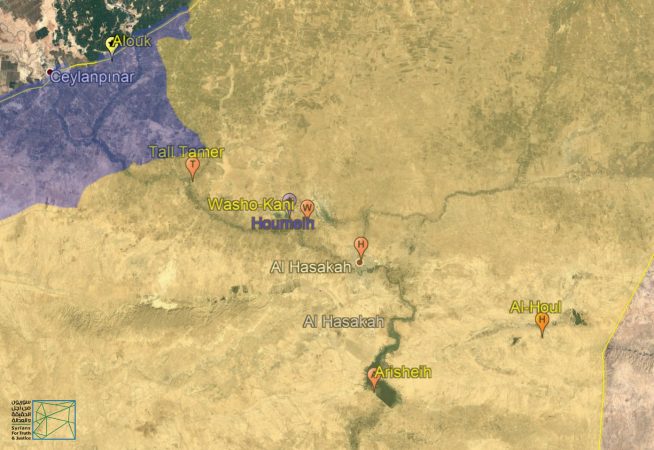
Then, in October 2019, Turkish state forces invaded some areas of North-East Syria, including the region of Serekaniye, which supplies water to almost half a million people in the region around Hasakah. The Alouk water station in Serekaniye was targeted on the first day of the invasion. Since then it has been fixed and then put out of service again repeatedly.
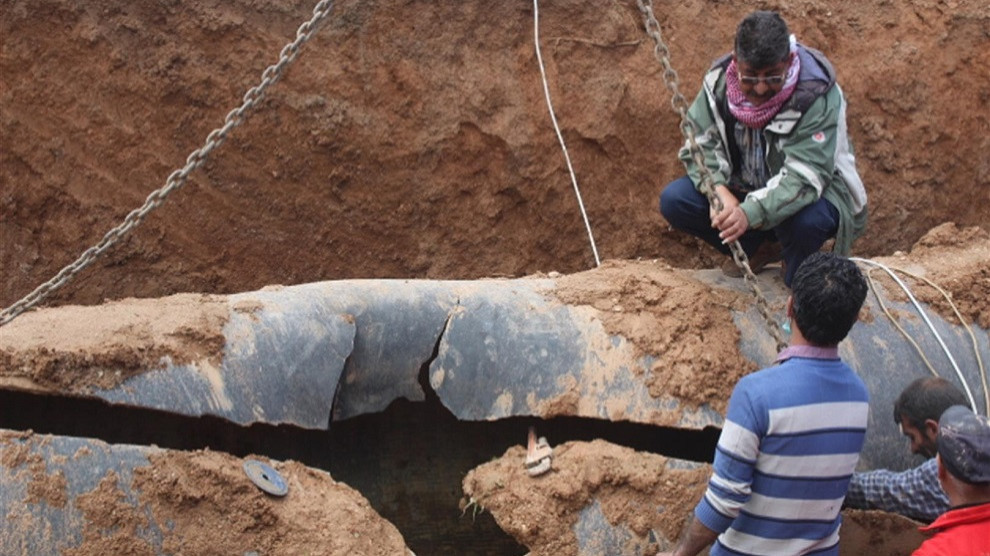
Since the start of the invasion of Serekaniye, Turkish military forces and their allies have continued to attack water infrastructure, burned newly planted orchards and dammed the rivers providing most of the fresh water and electricity to Syria. Hundreds of thousands of people are currently without safe reliable drinking water.
This situation is greatly exacerbated by the threat of Covid-19. In the time of a pandemic, access to water is more vital than ever.
“In the midst of a global pandemic that is overloading sophisticated governance and infrastructure systems, Turkish authorities have been cutting off the water supply to regions most under strain in Syria,” said Michael Page, deputy Middle East director at Human Rights Watch. “The Turkish authorities should do everything they can to immediately resume supply to these communities.”
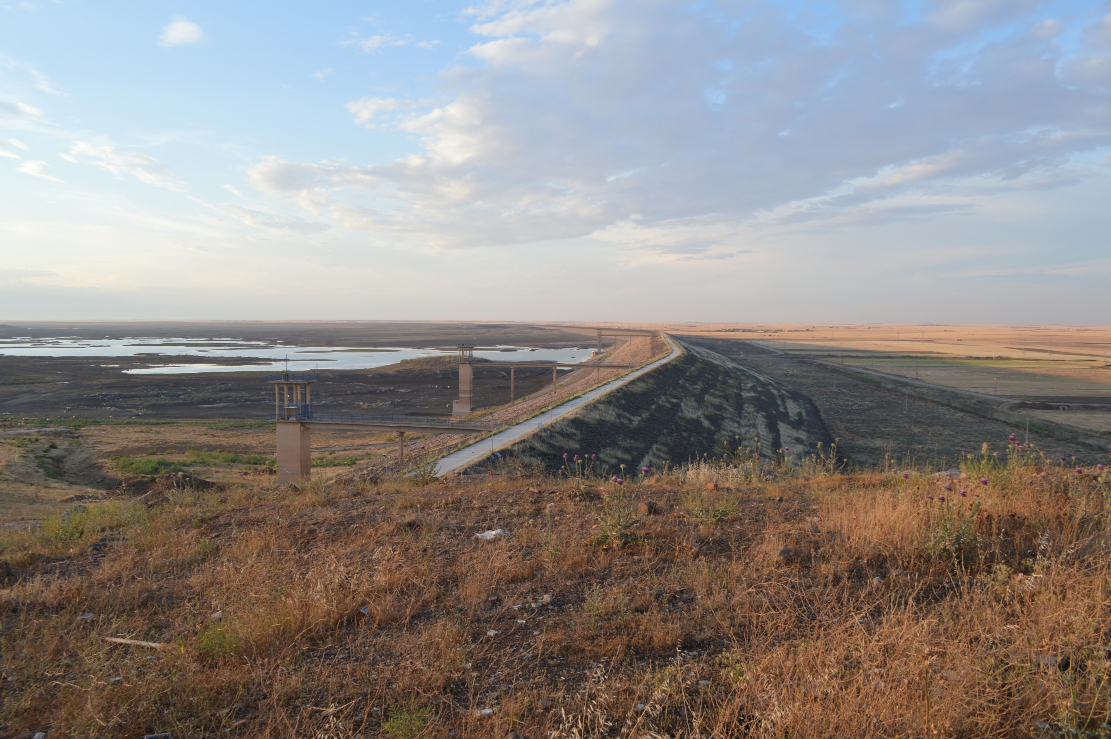
Now, the people in Rojava need your help. We want to raise £100,000 for vital water infrastructure in North-East Syria.
A small private foundation in the UK that has previously supported projects in the region has agreed to a match-funding offer to kick-start the project. It will donate £1 for every £1 of the first £50k raised. This means we only need to raise £50,000 to reach the £100k target!
The fund will help women’s co-operatives and democratic local municipalities in Rojava with projects like repairing infrastructure damaged by bombings, digging wells and building water pumps for refugee camps, as well as funding long-term projects like co-operative farm irrigation systems and river cleaning initiatives.
Despite the ongoing war, people in Rojava are still living cooperatively, rebuilding their lives, their ecology and their economy.
You can help support these efforts. Please let other people know about this campaign and donate what you can.
Water is not a weapon. Av jîyan e – Water is life!
Who are we?
The Solidarity Economy Association are working together with Aborîya Jin (Women’s Economy) in North-East Syria, not-for-profit NGO Un Ponte Per (Italy), UK-registered charity Heyva Sor a Kurdistanê (Kurdish Red Crescent), Roots for Change (Switzerland), and the Save the Tigris Campaign.
The Solidarity Economy Association (SEA) have been partnering with primarily autonomous women’s economic structures in the region for some time. When Turkey began its new invasion of NES on 9 October, a renewable energy engineer was in the region working with SEA and Aborîya Jin to identify projects relating to renewable energy. A common thread running through nearly all the projects identified was water. Where energy was needed, it was often in order to reach water in the wells since the water table is dropping, to make new wells for new community projects, or to irrigate land, in addition to smaller amounts of electricity for households.
Aborîya Jin (AJ, Women’s Economy) are a democratic autonomous economic body that is part of the women’s movement in NES. Active right across the region and made up entirely of women, their role is to strengthen the role of women in society by building up the women’s economy, empowering women to become self-reliant, and developing confidence and collective autonomy. They are the main women’s co-operative development body in the region and are also supporting the foundation of communities of families who have lost their main breadwinner in the war.
Un Ponte Per (UPP) have been active in Italy and the Middle East for 28 years to promote peace, human rights and solidarity through information campaigns, cultural exchange, cooperation projects, peace building programmes and the creation of social justice networks.
Heyva Sor UK (Kurdish Red Moon/Crescent) are the UK branch of humanitarian non-profit organisation Kurdish Red Crescent, providing medical care and aid for refugees in Kurdistan, NES and beyond. They are a registered charity in the UK.
Roots for Change (RfC) are a non-profit environmental organization based in Switzerland, North-East Syria and Kurdistan Region of Iraq (KRI). Their mission is to promote the use of renewable energy, water conservation systems and sustainable agricultural practices, such as Agroforestry.
Save the Tigris are a campaign coalition supporting civil society movements working on dams, pollution and water management, including those for water rights in Iraq and in North-East Syria. The campaign has a network of water activists across the region and includes UPP.
How will the money be spent?
Funds raised will provide grants to local co-operatives, civil society organisations and democratic local municipalities, supporting both acute needs like water pumps for refugee camps where internally displaced people (IDPs) are living, as well as long term projects like co-operative farm irrigation systems and river cleaning initiatives. We want to create a fund that can respond to changing situations in a region that is extremely volatile, while still remaining highly accountable.
The fund will be managed by two committees, one based in Europe, the other based in North-East Syria (NES). All projects that receive funds will be fully documented, with activities and expenditures tracked.
Several pre-identified projects are ready to roll. So once we have transferred the funds to the region, it shouldn’t take long for your donations to be put to work.
For example…
Supporting Aborîya Jin women’s co-operative projects:
- Support for Aborîya Jin’s ecological women’s village project in Derik – a village based on the communal economy, run by women (predominantly economically-disadvantaged women, who have experience in agriculture). The main challenge is to find enough water to support agriculture.
- Well drilling and water-pumping projects for projects being developed by Aborîya Jin; irrigation projects for newly formed co-operative farms, and small women’s co-operatives where access to water is a necessity, such as those based on agriculture.
Support for NES local Directorates of Water plans, which include:
- Restoring the Al Hemmeh water station, which has pumping capacity to re-fill Al Hemmeh reservoir (near Hasakeh) from the Khabour river. This is now urgent due to the bombing of Allok water station in Serekaniye.
- Extending the water network to the Talae neighbourhood (in Hasakeh), where existing water tanks are not enough to meet the needs of the people;
- Sewage systems and solid waste management in urban areas (like Qamishlo city, where the sewage gets into the river);
- Water treatment consumables, rehabilitation/restoration, operation and maintenance of drinking water supply in urban areas;
- Management of public fountains;
- Water distillation / desalination;
- Cleaning and purification of Jak Jak (Cax Cax in Kurdish) river in Qamishlo.
Supporting the Emergency response for Internally Displaced Persons (IDPs) and the hosting communities (in camps and outside):
- Distribution of hygiene kits, water disinfection tablets, emergency water trucking, jerrycans, emergency sanitation facilities in IDP camps and informal sites, in host communities and collective centres;
- The acquisition and installation of high-volume water pumps to deliver water from the Euphrates to isolated IDP camps;
- Latrine repair and maintenance in camps;
- Sustainable water supply systems for camps (such as Al Hole).

